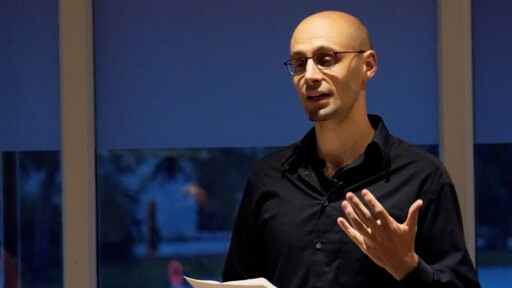- cross-posted to:
- world@lemmy.world
- cross-posted to:
- world@lemmy.world
cross-posted from: https://lemmy.ml/post/26284554
By Syma Mohammed
Published date: 20 February 2025 21:44 GMTAlex Tyrrell, party leader of the Green Party of Quebec, who accompanied Engler to the police station on Thursday, spoke to the Middle East Eye about Engler’s arrest.
“I think it’s a shocking attack on free expression and democratic rights and criticism of Israel in Canada - a country that’s supposed to be a free, democratic society. We’re supposed to speak out about a genocide," Tyrrel told MEE.



How do you objectively decide that? Because Palestinian protestors would violate this:
https://x.com/EYakoby/status/1854901645492072449
https://x.com/DrewPavlou/status/1800747111715311631
The same way you objectively decide anything else in law. You apply the principles to the facts.
Your first example there is a gimme; clear and obvious example of antisemitic hate speech. The fact that they’re protesting against Israeli genocide isn’t some magic shield that protects people from criticism. You can protest against the actions of Isreal without declaring that Hitler was right.
The second one is a grey area. That’s the thing; when you take a serious approach to the problems of the world, instead of fleeing to the simplicity of ideas like free speech absolutism, which require no degree of complex thought, you will inevitably run into grey areas. So I’m not going to give a hard answer on this one because I think it would take a lot of serious thought and debate to come up with a hard answer on it. But I will say that even if it was ruled as intolerant speech, nothing would be lost. You can protest against Isreal and stand up for Palestine without needing to celebrate the actions of Hamas. Those things are not intrinsically linked. So your examples do not demonstrate any kind of underlying flaw with Popper’s principle. Nothing of value is lost if we as a society choose to say that these kinds of speech are unacceptable.
A society can choose to say that certain types of speech are intolerable, but do we get better results by jailing those people? Or do we make it more acceptable over time to jail people who are simply protesting against the government? Do we then apply violence to the protesters who don’t agree to be peacefully arrested?
This isn’t a theoretical consideration. See Tiananmen square, arrests of protesters in Russia, Iran, etc. The propaganda mouthpieces of these countries love to point out when similar things happen in the West
It’s not a hypothetical, but it’s also not responding to the specific premise of Popper’s paradox.
You’re basically doing the equivalent of saying “Some people get falsely accused of murder, therefore we should make murder legal.”
People protesting against the government are not enaging in intolerant speech. It’s that’s simple. There’s a clear cut rule that Popper lays out. You can say “Oh, but what if we decide to not follow that rule?” but then you’ve completely rejected the premise. That’s no more useful than it is to suggest that democracy is bad because democracies sometimes become dictatorships. If your argument “X is bad if you do it badly” then you’re always going to be right, but not in a way that’s useful.